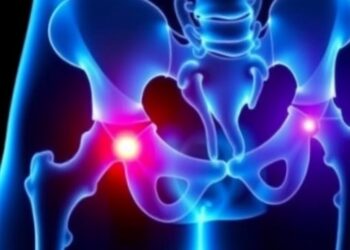As of 2024, 24 states including Virginia and Maryland, and DC have legalized the adult recreational use of cannabis. As laws change, citizens’ perceptions of the drug and reasons for using the drug have also shifted. In 2020, 34.5% of adults aged 18-25 reported using cannabis in the previous 12 months, according to the Substance Abuse and Mental Health Services Administration. Health experts seek to better understand the broader implications of legalizations and individuals’ motivations and attitudes related to cannabis use.
As of 2024, 24 states including Virginia and Maryland, and DC have legalized the adult recreational use of cannabis. As laws change, citizens’ perceptions of the drug and reasons for using the drug have also shifted. In 2020, 34.5% of adults aged 18-25 reported using cannabis in the previous 12 months, according to the Substance Abuse and Mental Health Services Administration. Health experts seek to better understand the broader implications of legalizations and individuals’ motivations and attitudes related to cannabis use.
New qualitative research by Iulia Fratila, assistant professor in George Mason University’s College of Public Health, and Liza Berdychevsky, associate professor at the University of Illinois Urbana-Champaign, describes in what ways young adults (aged 18-30) view cannabis as a recreational and leisure pursuit.
“Recreational cannabis legalization and liberalization is shifting across U.S. states. More holistic approaches to understanding perceptions of cannabis benefits and leisure motivations are scarce due to the longstanding criminalization of cannabis,” said Fratila, the principal investigator. “This research provides novel insights into cannabis users’ leisure motivations of use and perceived benefits, which can be leveraged strategically in public health and drug education efforts in the societal transition from criminalization to normalization and commercialization trends concerning cannabis.”
Participants in Fratila and Berdychevsky’s study suggest cannabis can offer a leisure state of mind (e.g., experiencing flow, relaxation, and meditative state) as well as represent a leisure pursuit reserved for free time (e.g., using cannabis as a reward for free, post-obligations time outside of daily demands). Additionally, participants described how cannabis serves as a leisure activity itself (i.e., the act of getting high) and/or as an activity that accompanies other leisure pursuits and socialization (e.g., getting high and going to the movies), while providing pleasurable outcomes (e.g., feeling enjoyment, engaging in humor, enhancing senses).
“Participants discussed the ways that their recreational cannabis consumption represents a controlled and calculated risk-benefit leisure choice that is successfully managed for their overall well-being. Their narratives highlight that this perceived leisure pursuit does not necessarily interfere with their otherwise productive lives,” said Fratila.
These insights can inform harm reduction approaches to cannabis education that may be more effective considering the cannabis legalization and liberalization landscape. Health educators and health promoters can discuss cannabis risks and potential negative health outcomes while acknowledging the desired benefits cannabis users anticipate.
Fratila warns about the impacts of widespread legalization and the emerging recreational cannabis markets, which highlights another meaningful implication connected to the study findings. “Under prohibitory regulations, recreational cannabis use has been explicitly framed as deviant, criminal, harmful, life-wrecking, and void of any potentially desirable leisure qualities (e.g., pleasure, socialization). This study showcases the cannabis users’ understanding of cannabis as normative recreation and the anticipated leisure benefits,” said Fratila.
She further explained, “However, this is a cautionary tale because these desirable qualities may be easily exploited. More specifically, society may be facing a new conundrum with the commercialization of recreational cannabis as the switch from criminalization to commercialization overly simplifies and glamorizes the leisure meanings of cannabis for profitable gain.”
Public health experts and scholars will need to be at the front lines, in collaboration with other fields, to monitor how cannabis is repositioned and accommodated in a cannabis-friendly society, according to Fratila. Specifically, it will be important to spearhead effective health promotion efforts that minimize any related harms and maximize well-being.
This was a qualitative research project utilizing hermeneutic phenomenology, a research method to study how experiences affect everyday practices, and in-depth interviewing with 16 individuals (ages 18-30) living in the U.S. states with legalized recreational cannabis.
“Phenomenological Exploration of Young Adults’ Recreational Cannabis Use Experiences and Associated Leisure Meanings” was published in the Journal of Leisure Research in June 2024. This research was not funded.
Journal
Journal of Leisure Research
Subject of Research
People
Article Publication Date
5-Jun-2024




